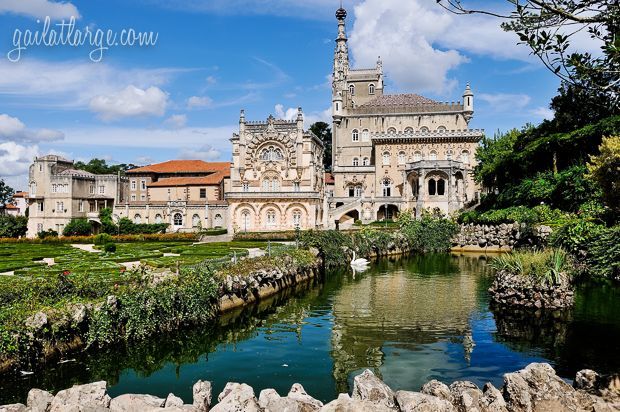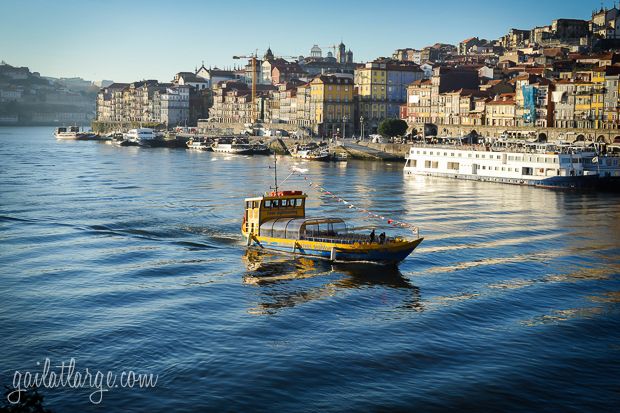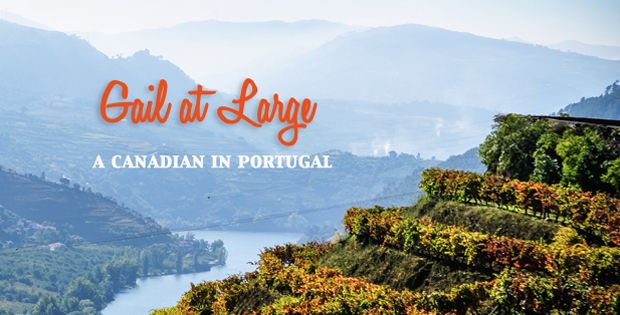Expat Editions is a series of interviews with expats from various countries living in Portugal, as well as Portuguese living abroad. It offers a brief insight into their personal experiences, providing unique information from “outsiders” that you don’t find in travel guides. If you’ve considered moving to Portugal, or if you’re Portuguese and debated living abroad, you may find our featured expats share more with you than their home country: you may recognize your own dreams, fears and challenges in their experiences.
In this edition, we interview Gail Aguiar, a Canadian living in Portugal.
Catarina: How long have you been in Portugal and why did you decide to move?
Gail: I moved to Portugal the end of September 2013. I knew I was going to move away from Toronto but I was thinking more along the lines of Montreal (500km away), not across the ocean. But I met my now-husband in Portugal while on a birthday trip in 2011 and we stayed in touch, eventually becoming a couple more than a year later on a road trip through New England and Eastern Canada in late 2012. We married in the Azores on my birthday in 2013, and I became a resident of Portugal a few months and a stack of paperwork later.
When the choice became whether to stay in Canada or move to Portugal, I felt that I’d accomplished what I’d set out to do in Toronto, and I was ready to take on a different sort of challenge – to be an expat again. A major difference this time was that I’d need to learn a new language, but more importantly I also wanted to focus on being a creative person in a country that valued culture over hyper-consumerism. I wanted to de-corporatize my life as much as it’s possible to do in modern times; I never wanted to see another chain restaurant or shop if I could help it (there is no Starbucks in Porto yet, believe it or not). I wanted to have a closer connection with the environment and live by the ocean again, walk old streets and be surrounded by architecture from different centuries. I could have all of this in Portugal, and that’s much of the reason why I live here and not in Canada.

C: Name one positive thing or experience you weren’t expecting to have in Portugal.
G: I have lots, but the most pleasant ongoing experience I have in Portugal versus my previous expat lives is that I don’t get the “Where are you from?” question immediately. It’s not that people aren’t curious, but the Portuguese are polite enough to make my nationality secondary to what I have to say. Much of the time I’m not asked at all, and in a country where I look like no-one, this is a nice surprise. I like that my nationality doesn’t really matter, that I can express myself first and perhaps dispel some preconceived notions along the way.
C: What do you miss the most about home?
G: My friends and family. But it’s not like they are all in one place, either, that’s never been the case. I still have to fly around to visit people, the difference is the trip is longer and more expensive. But I’m willing to live with this. Besides friends and family, I get the occasional pang for a Chinatown dim sum or Montréal bagel with smoked meat or poutine, but after a big Portuguese meal a food coma sets in and everything is forgotten. The food variety in Canada has everything to do with a diverse population, though, so I can’t talk about the food without talking about the people that brought the food to Canada in the first place. That is to say, I’m used to lots of nationalities present, and although Portugal isn’t as homogeneous as Japan, for example, it does mean being a foreigner in Portugal can feel quite isolating for a while.
C: Name your favorite Portuguese dish/food and your favorite place there.
G: I live in the north, so I don’t have much opportunity for carne de porco à Alentejana (Alentejo-style pork with clams) with lots of cilantro, which is a shame! Also, because cilantro is not used much in the north. Whenever I see it on a menu, that’s always what I want first. My favourite place is Porto. It’s not a big city, but I’ve been photographing it for two years and feel like I could never run out of things to photograph. For historical reasons it’s called “Cidade Invicta” but in a contemporary way I think this name is quite fitting for Porto’s ability to reinvent itself and assert its identity.

C: What advice would you give someone who wants to move to Portugal?
G: I believe that to better understand the Portuguese people and culture, you have to learn about their history, especially events such as the dictatorship and revolution and the social effects of austerity measures. Remember that this is still very much the Old World, and this corner of Europe has strong traditions that you may consider charming as a tourist but as an expat these same qualities will most likely frustrate you. For example, I hear people say things like “I love the slower pace of life in Portugal” as they admire the café culture, but when they arrive at a restaurant they get impatient with slow service, not realizing how contradictory their statements are. (“What, you’re in a hurry now??”) Adapting to a culture that does not resemble your own requires a LOT of patience and perseverance. Expat life is definitely not for everyone, major life changes are bumpy and the older you get the harder those changes become. But if you’re willing to open your mind and adapt your ways to a new reality, the rewards are rich: a whole new life.
Check out Gail’s blog, Gail at Large, and follow her on Twitter (@ImageLegacy).



Thanks for sharing your space with me to air my expat thoughts! 🙂
Obrigada eu! Foi muito interessante. I completely agree about the “slow pace of life” observation! Makes me laugh.